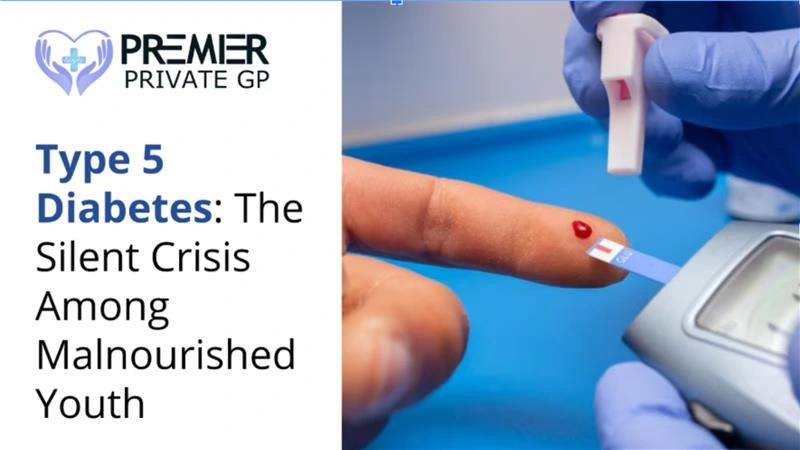In a world where overnutrition often takes centre stage, a silent crisis brews among the undernourished. Recent studies have brought to light a form of diabetes not caused by excess, but by deficiency. Enter Type 5 diabetes—a condition stemming from chronic malnutrition, now officially recognised by the International Diabetes Federation (IDF).
This revelation is more than just a medical classification; it’s a call to action for global health communities to address an overlooked epidemic affecting millions in low- and middle-income countries.
What is Type 5 Diabetes?
Type 5 diabetes, also known as malnutrition-related diabetes, primarily affects lean and undernourished individuals, especially adolescents and young adults in regions like Asia and Africa. Unlike Type 1 diabetes (an autoimmune condition) or Type 2 diabetes (often linked to obesity and insulin resistance), Type 5 diabetes arises from prolonged undernutrition leading to impaired pancreatic development and severe insulin deficiency citeturn0search5.
The Journey to Recognition
Although first observed in the 1950s, Type 5 diabetes remained under the radar for decades. Misclassified and misunderstood, it lacked the attention and research necessary for proper identification and treatment. It wasn’t until recent efforts by global health experts, including Dr. Meredith Hawkins and Dr. Nihal Thomas, that the condition received the spotlight it deserved.
The IDF’s formal recognition in April 2025 marked a pivotal moment, establishing a dedicated working group to develop diagnostic criteria, therapeutic guidelines, and educational modules for healthcare professionals worldwide.
Why This Matters
The acknowledgement of Type 5 diabetes underscores a critical gap in our understanding of diabetes and its diverse manifestations. It highlights the need for:
- Accurate Diagnosis: Differentiating Type 5 from other forms is crucial, as treatment approaches vary significantly.
- Tailored Treatment: Standard insulin therapies may not be suitable; a combination of minimal insulin doses and nutritional support is often more effective.
- Global Awareness: Recognising the socio-economic factors contributing to this condition is essential for prevention and management.
Symptoms and Diagnosis
Individuals with Type 5 diabetes often present with:
- Persistent fatigue
- Unexplained weight loss
- Stunted growth
- High blood glucose levels without typical signs of ketosis
Diagnosis involves assessing insulin secretion levels, nutritional history, and ruling out autoimmune markers associated with Type 1 diabetes.
Treatment Approaches
Managing Type 5 diabetes requires a nuanced approach:
- Nutritional Rehabilitation: Addressing the root cause by improving dietary intake, focusing on protein and micronutrient supplementation.
- Minimal Insulin Therapy: Administering small insulin doses to manage blood glucose levels without causing hypoglycemia.
Monitoring and Support: Regular follow-ups to adjust treatment plans and provide psychological support.
Moving Forward
The recognition of Type 5 diabetes is a step toward inclusivity in global health narratives. It calls for increased research to understand the pathophysiology and develop effective treatments. Governments and health organisations must prioritise nutrition and healthcare access. It is also imperative to educate communities about the importance of balanced nutrition and early medical intervention.
Conclusion
Type 5 diabetes serves as a stark reminder that malnutrition remains a pressing issue with far-reaching health implications. As we broaden our understanding of diabetes, it’s imperative to address all its forms with equal urgency and compassion.
For more information on diabetes management and nutritional support, visit the International Diabetes Federation and consult your local healthcare professionals specialising in endocrinology and nutrition.







